


 Edition coordinated by: Ana-Magdalena Iordăchescu, Mariana Stoenescu
Olivia Johnston Catherine Smith
Edition coordinated by: Ana-Magdalena Iordăchescu, Mariana Stoenescu
Olivia Johnston Catherine Smith
EnglishL2practiceActivitybook
8
8 All Clear. English practice. Activity book. L2 Olivia Johnston, Catherine Smith
Edition coordinated by: Ana-Magdalena Iordăchescu, Mariana Stoenescu
Prelucrare după: All Clear, Workbook 4 © Macmillan Publishers Limited/ Olivia Johnston și Catherine Smith, 2016 Ediţie publicată sub licenţă. Ediţiile originale au fost publicate pentru prima dată în 2016 de Macmillan Publishers Limited
Copyright © 2018 Grup Media Litera
Toate drepturile rezervate Editura Litera O.P. 53; C.P. 212, sector 4, București, România tel.: 021 319 63 90; 031 425 16 19; 0752 548 372 e-mail: comenzi@litera.ro

Ne puteţi vizita pe
Editor: Vidrașcu și fiii
Redactor: Gabriela Niţă
Corectori: Carmen Bîtlan, Anca Romete
Credite foto: Dreamstime, Shutterstock
Copertă: Vlad Tehnoredactare:PanfilovIulian Aprodu
Prepress: Olimpia Bolozan
Descrierea CIP a Bibliotecii Naţionale a României JOHNSTON, OLIVIA
English practice: activity book: 8 All Clear: L2/ Olivia Johnston, Catherine Smith, ed. coord. by Ana-Magdalena Iordăchescu, Mariana Stoenescu. – București: Litera, 2018 ISBN 978-606-33-2103-0
I. Smith, Catherine
II. Iordăchescu, Ana-Magdalena (coord.) III. Stoenescu, Mariana (coord.) 811.111


Unit VocabularyGrammar Starter page 4 Vocabular y • Classroom language • Grammar 1 Lifestyle changes page 7 • Life-changing events • Verb + preposition • Present simple • Past simple • used to • Subject and object questions 2 Books page 13 • Literary genres • Compound nouns • Past simple and past continuous • Past per fect • Time expressions with past per fect 3 Save the planet page 19 • Saving environmental resources • Prefixes • Present per fect + for / since /still / yet / already / just • Present per fect and past simple • Time expressions with the present per fect 4 Fashion world page 25 • Style adjectives • Phrasal verbs: clothes • Relative clauses • some / any / no compounds • The future 5 On the job page 31 • The world of work • Work verbs • The first and second conditional • Gerunds and infinitives* 6 It’s a crime page 37 • Crime verbs • Crimes and criminals • Modals of deduction and possibility • The third conditional 7 Sporting life page 43 • Sporting verbs • Confusing verbs • The passive • Passive questions 8 Tech and techies page 49 • Developing products • Reporting verbs • Reported speech • Time expressions in reported speech • Reported questions referenceVocabulary page 55 practiceGrammar page 63 Exam ContentsTrainer page 71 Having fun with English page 102 verbsIrregular page 103 3
VocabularVocabularyy
Revision
1 Circle the odd word out in each group.
1 apple picture bread meat
2 history maths teacher science
3 car bus train bedroom
4 theatre the news soap opera chat show
5 cough leg headache sore throat
6 flute drums hip -hop keyboards
7 middle over under up
8 amazing terrifying red enormous
9 washing up soundtrack plot screen
2 Add a word to each group in exercise 1.
1 cheese
Jobs
3 Circle the correct words.
A journalist / lab technician works for a newspaper.
1 A police officer / researcher helps people and helps catch criminals.
2 A firefighter / lawyer is someone who is an expert in legal questions
3 A postal worker / politician brings letters to people’s homes
4 Picasso was a doc tor / an artist. He painted many amazing pictures.
5 An electrician / A mechanic installs or repairs electrical equipment.

S StarterunitCharacter adjectives






4 Complete the sentences with the correct word in brackets.
Maria is very generous She always buys people lovely birthday presents. (generous / selfish)
1 My brother is He doesn’t like talk ing to new people. (shy / confident)
2 Josh is . He does lots of spor t and other activities. (laz y / energetic)
3 Why is Olly always so ?
He should smile and laugh a bit more (funny / serious)
4 I think I zz y is . She never tells lies and I trust her (honest / dishonest)
5 Dad is usually very He likes reading the paper on his own. (talk ative / quiet)
Classroom language
5 Complete the questions with the words in the box.
borrow mean pronounce say spell
Q: How do you say casa in English?
A: House.
1 Q: Can I your pen?
A: Sorry, I’m using it
2 Q: How do you cough?

A: I’m not sure but I think it ’s /kɒf/





3 Q: How do you it?
A: C-O-U G H.
4 Q: What does boiling ?
A: Here’s a dictionary. Let ’s look it up.
4
5432 6789
PresentGrammarcontinuous


1 Complete the dialogue with the present continuous form of the verbs in brackets.
Toby Hi, Liam! Liam Hi, Toby. Toby What (1) are you doing (you / do) at the moment? (2) (you / use) your bike? Liam No, Josh and I (3) (stay) at home today. We (4)
(watch) the match on TV at the moment. It ’s great.
United (5) (win). Toby What (6) (Dad / do)? Liam He (7) (make) lunch.
Any way, Toby, you can use my bike Toby Maybe I’ll watch TV with you and Josh. Liam OK.
Present simple and continuous
2 Circle the correct words.
My name’s Oliver Riley and (1) I’m living / I live in Camden Town in north London










Camden is a great area of London. I (2) love / is loving it At weekends a lot of tourists (3) come / are coming to Camden because of its famous market. It ’s Saturday today and (4) I’m watching / I watch the market from my window. I can (5) seeing / see a lot of tourists Two girls (6) look / are looking at some earrings and their boyfriends (7) are taking / take photos of the canal. I can’t go out to the market today because (8) I’m doing / I do my homework. (9) I always get / I’m always getting a lot of homework. It ’s awful!

Question words
3 Circle the correct words.
1 Who / What is your favourite film star?
2 How / Why do you like him or her?
3 Where / When does your best friend live?
4 When / How is your mother ’s birthday?
5 What time / What does school finish?
6 Where / How do you get home af ter school?
7 What / Who is your favourite TV programme?
8 Which / What time book are you reading at the moment?
4 Answer the questions in exercise 3 for you. My favourite film star is Robert Pattinson. 87654321 Complete the table. l laz f le than the
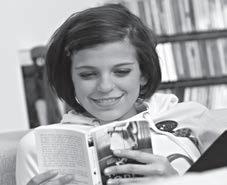
5
Comparatives and superlatives 5
adjectivecomparativesuperlative cohotshorto
bady
sociabinterestingar
shorter
shortest Starter unit
6 Look at the pictures and complete the sentences with the correct comparative or superlative form of the adjective in brackets.
7 Complete the sentences with the correct comparative or superlative form of the adjectives in the box.
adventurous big difficult good high talented talk ative
Mount Everest is the highest mountain in the world
1 My grandmother is person I k now. She travelled to India alone last year and she’s 61 years old!
2 Spain is Scotland. Scotland is quite small.
3 I think Lorde is Rihanna. She writes all her own songs.
4 Mark is person in the class He never stops talk ing!
5 In my opinion, Real Madrid are Manchester City. They won more games last season.
6 Japanese is language to learn. It takes a long time to speak it well
(not) as … as
8 Look at the pictures and complete the sentences with (not) as … as and the adjectives in brackets.
Computer A is the biggest (big)
1 Computer B is . (small)

2 Computer C is Computer A. (small)

3 Computer B is . (cheap)
4 Computer A is (expensive)

5 Computer C is Computer B. (expensive)
6 Computer C is
Computer B. (power ful)
Ring C is as expensive as ring A. (expensive)
Ring B is not as expensive as ring A (not / expensive)

1 Ring A is ring B. (old)
2 Ring C is ring A. (not / beautiful)






3 Ring B is ring A. (beautiful)
4 Ring C is ring B. (not / old)
5 Ring B is ring C (not / small) B C A B C
Grammar
A
changesLifestyle
In this module you will practise:






Vocabulary Life-changing events Verb + preposition
Grammar Present simple Past simple used to Subject and object questions

Unit 7
1
Lifestylechanges
VocabularVocabularyy
Life-changing events
1 Look at the pictures complete words vowels.
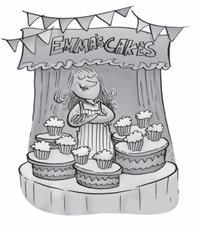
2 Match 1–8 with a–h to make phrases.
1 win a) new friends
2 take b) school
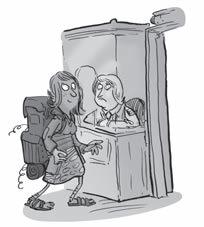
3 settle c) for a job interview 4 make d) an award have e) out of university go f) an accident


7 drop g) down 8 change h) a gap year
3 Match the phrases in exercise 2 with what the people say.

“We’re getting married nex t month. We’ve already bought a house.” settle down

1 A “What can you offer this company?”












B “I’m very hard-work ing and I speak several languages.”
2 “And the winner of Teenager O f The Year is Damien Arrowsmith.”



3 “I’m going to volunteer in a hospital in Malawi. After that I want to travel in Africa.”
4 A “I’ve moved into the house nex t door.”
B “Would you like to come round for a coffee?”
5 “I’m only 19 but I’ve lef t university. It was too boring. I want to get a job and save some money to travel.”
6 A “Where did you go to school before?” B “In Liverpool.”
7 A “What ’s wrong with your leg?”
B “It ’s broken I fell off my motorbike.”
8 1
and
the
with
g e t i n t o t r o u b l e 1 r t r 2 b c m r c h 3 g b r d 4 m v h s 5 s t r t y r w n b s n s s
5
6
Verb + preposition
4 Circle the correct prepositions.
argue about / to 1 wait for / on 2 agree about / for 3 participate at / in
4 argue on / with 5 dream about / for
5 Complete the sentences with the prepositions in the box.
about on to to to with
My mother loves listening to music
1 I usually agree my best friend about most things.
2 She’s a great person to have in the team. You can always depend her.
3 I’m look ing for ward seeing you nex t weekend.
4 My brother always worries exams.
5 When I’m worried I sometimes talk my aunt Alice.
6 Complete the sentences with the phrases in the box.
agree about argue with dream about talk about worry about
3 I don’t want to that test. I k now I did very badly in it.





4 When I my father about politics he always wins because he k nows more facts.
7 Read what the people say and circle the correct phrase.
“Why does he want to climb that mountain? It ’s very dangerous. He might fall.”
look for ward to / worry about
1 “I’ve got tickets for the concert on Saturday It ’s going to be great.”
look for ward to / wait for
2 A “It was really interesting.”
B “No it wasn’t It was really boring.” agree about / argue about





3 A “That book was really terrible.”
B “Yes, you’re absolutely right.” agree with / argue with





4 “There’s an athletics match tomorrow. I’m going to be in it because I’m in our school athletics team.”







participate in / worry about
5 “We need you in the team. We can’t succeed without you.”
depend on / wait for
6 “Where is she? It ’s 4.15 and I got here at 4pm She’s late!” argue with / wait for
7 “I’d love to sail around the world in my own boat one day.” dream about / listen to
8 Complete the sentences for you.
I of ten dream about learning to fly a plane.
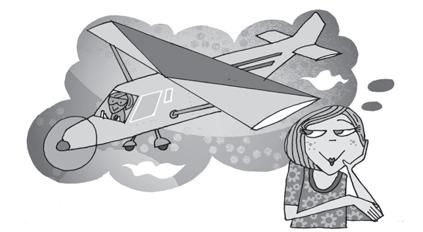
1 If I’m staying out late, I phone my parents so they don’t me
2 We have the same taste in music so we always which bands are the best
1 I always look for ward to the weekend .
2 My best friend and I sometimes argue about .
3 I enjoy par ticipating in .
9Unit 1
Present simple





1 Order the words to make questions.
go / you / of ten / do / How / cycling ? How often do you go cycling?
1 get / you / angry / ever / Do ?





2 of ten / cook / How / dinner / do / you ?
3 do / school / usually / What / finish / you / time ?
4 before midnight / to sleep / you / go / usually / Do ?
5 your friends / sometimes / go / you / Do / with / dancing ?
Past simple
2 Complete the sentences with the past simple form of the verbs in brackets.
I won (win) £20 in a writing competition at school.
1 Yesterday, we (star t) a new unit in our English lesson.
2 Clare (arrive) late for school yesterday.
3 My mother (study) science at university.
4 Christopher Nolan (make) his first film in 1999.
5 He (become) famous in 2008 with the film The Dark Knight
6 She (decide) to become a doctor af ter that.

used to
3 Circle the correct words.










When we were young, we always (1) used to go / go on holiday to my grandparents’ house at the beach, but now we (2) used to like / like to go abroad. We always (3) used to go / go camping in France, to the same campsite every year. My parents (4) used to hate / hate camping, but they love it now. When we visited my grandparents, we always (5) used to travel / travel by train, but now we always (6) used to drive / drive to the campsite It isn’t quicker, but it ’s easier because we always (7) used to have / have a lot of things
4 Complete the questions with used to and the words in brackets.
Did you use to get (you / get) into trouble a lot when you were young?
1 (people / spend) more time cook ing 20 years ago?
2 What k ind of music (you / listen to) when you were a teenager, Grandma?
3 (you / spend) a lot of time on the phone when you were a teenager, Grandma?
4 (your brother / annoy) you when he was younger?
5 Complete the dialogue with used to and the words in brackets.
Grandma I was born here 93 years ago It (1) used to be (be) much quieter here in those days. It was a village and there weren’t many cars. Do you k now, even the policeman (2) (ride) a bike. Ellie What (3) (you / do) in your free time? (4) (you / watch) TV?
Grandma Oh no, dear. We didn’t have a television But we sometimes (5) (go) to the cinema in Brighton. They (6) (show) lovely black and white films. Nice and romantic!
Grammar 10
6 Complete the text with the correct form of the verbs in brackets. Use the present simple or used to + verb.
8 Tick the correct answer a) or b) for each question.

Who did Gina smile at? a) Gina smiled at Ben ✓ b) Ben smiled at Gina.
1 Who smiled at Gina? a) Gina smiled at Ben b) Ben smiled at Gina.
2 Who phoned Anna?

a) Anna phoned Liam. b) Liam phoned Anna.
3 Who did Anna phone? a) Anna phoned Liam. b) Liam phoned Anna
SHE’S SO LUCKY!
Lily Thompson is a millionaire. She (1) lives (live) in a big flat in the centre of London She (2) (go) on holiday in the Caribbean every year. She (3) (not drive) because she’s got a driver and she doesn’t need to work. But

Lily ’s life (4) (not be) like this. What (5) (her life / be) like? Ver y different! She (6) (work) in a café as a waitress She (7) (buy) cheap clothes and she (8) (not go) abroad for her holidays. Her life changed forever when she won the lottery last year!
Subject and object questions




7 Look at the questions. Write S if the question is a subject question with the verb in the affirmative form. Write O if the question is an object question with the verb in the interrogative form.
Who ate the cake?
1 Who did you see in the park?
2 What did you buy at the shops?
3 Who told you about the party?
4 What do you usually have for breakfast?
5 What makes you laugh?
S












9 Write subject or object questions using who or what for the underlined information.
Picasso painted Guernica. Who painted Guernica?
Picasso painted Guernica What did Picasso paint?
1 Shakespeare wrote Hamlet
2 Shakespeare wrote Hamlet.
3 Walt Disney created Mickey Mouse.
4 Walt Disney created Mickey Mouse.
5 Larr y Page and Sergey Brin started Google
6 Larr y Page and Sergey Brin started Google

11Unit 1
1 Correct the underlined errors. Rewrite the sentences.
He didn’t went abroad during his gap year He didn’t go abroad during his gap year. 1 Do sometimes you eat breakfast at school?
2 What used you to watch on TV, Grandma?
3 Circle the correct words to complete the text.






Bethany Hamilton
3 Who you miss most after you changed school?
Bethany Hamilton was born in Hawaii in 1990 and (1) grew up / was growing up near the ocean. When she was a child, Bethany (2) used to spend / spends all her time in the water and she learnt to sur f before she could walk. By the time Bethany was 13, she was the world’s number two under-eighteen sur fer and she (3) was planning / is planning to become a professional.
2 Read the text and circle the correct answers.
When he was a young child, Ben Adams (1) sur fing and sk ateboarding. He was also very interested in fashion and (2) … his own sur fing and sk ating clothes. When he was 15, he (3) a prize for his T-shirt designs, and during the summer, he (4) … for Fashion First in New York. At 16, he (5) out of school and started his own clothes company, Sk ate and Sur f. He is now 17 and a millionaire. We interviewed him at his home in Malibu, California
Q What (6) … when you dropped out of school?
Ben My Mum was worried but my Dad wasn’t.
Q What did your teachers think?
Ben They (7) … about me. They wanted me to stay at school.
Q Did you (8) … to get into trouble at school?
Ben Yes, I didn’t (9) … to listen to the teachers in any of my lessons, except PE.
Q What (10) … when you left school?

Ben I missed being with my friends at first but now I’ve got new friends.
A B C





1 loves loved was loving 2 used to design design use to design 3 winned was winning won
4 used to work was work ing worked
5 was dropping used to drop dropped
6 did happen happening happened
7 used to worr y worry worried
8 use used usually 9 use used usually 10 did you miss you missed used you to miss
Then at the age of 13, Bethany ’s life (4) changed / used to change forever. She (5) surfed / was surfing off the Hawaiian island of K auai with her friend Alana Blanchard and Alana’s brother and father.
Bethany (6) was lying / is lying on her sur fboard with her arms hanging in the water when a shark (7) attacked / was attacking her.
It (8) used to pull / pulled her lef t arm off just under her shoulder. Her friends helped her get back to the shore, but Bethany (9) lost / was losing a lot of blood. She (10) was / is luck y to be alive today.
But Bethany (11) didn’t stop / doesn’t stop sur fing Just one year af ter the attack , she (12) was starting / star ted competing again. Today Bethany still (13) surfed / sur fs in world championships.
FactsFacts
Shark attacks are very rare. In 1996, 43 000 Americans suffered toilet-related injuries while sharks injured just 13.
Score your progress from 1 (needs improvement) to 5 (excellent).
I can use the present simple to talk about present facts, habits and routines
I can use the past simple to talk about events in the past.
I can use used to to talk about past habits and states


I can use subject and object questions to ask about who and what.

12 Unit 1 Revision
Life-changing events
Verb + preposition

agree about (verb) /əˈɡriː əˈbaʊt/ to have the same opinion about something as another person. You agree about something.
agree with (verb) /əˈɡriː wɪð/ to have the same opinion as another person. You agree with someone



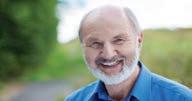
argue about (verb) /ˈɑː(r)ɡju əˈbaʊt/ to discuss something that you disagree about with another person, usually in an angry way. You argue about something argue with (verb) /ˈɑː(r)ɡju wɪð/ to discuss something with another person in an angry way. You argue with someone. depend on (verb) /dɪˈpend ɒn/ to need or trust someone to do something
dream about (verb) /driːm əˈbaʊt/ to think about something that you hope to do in the future

1 Circle the correct words.


1 Before she goes to university, my sister is going to take a gap year / win an award
She is going to work to save up some money and then change school / go abroad and travel with a group of friends She’s going to have a job interview / settle down this week for a position as a shop assistant

2 When I was 13, my family and I retired / moved house and went to live in a different city I had to change school, and that was difficult. At first, I didn’t k now anyone and I sometimes got into trouble / settled down with the teachers, but later I dropped out of university / made new friends. Now, I love my new school.
listen to (verb) /ˈlɪs(ə)n tuː/ to pay attention to what someone says to you look forward to (verb) /lʊk ˈfɔː(r)wə(r)d tuː/ to feel happy and excited about something that is going to happen participate in (verb) /pɑː(r)ˈtɪsɪpeɪt ɪn/ to take par t in something talk to (verb) /tɔːk tuː/ to speak or to have a conversation wait for (verb) /weɪt fɔː(r)/ to be hoping or expec ting that something will happen worry about (verb) /ˈ wʌri əˈbaʊt/ to feel ner vous or upset because you are think ing about your problems or bad things that might happen

2 Circle the correct words.
Some people always argue about / dream about being rich and famous one day
1 We always wait for / look forward to our camping trip in the summer holidays.
2 I don’t argue with / agree with you about this, but we can still be friends.
3 I need to listen to / talk to you about something impor tant.

4 Don’t worry about / dream about K aren’s health I am sure she will be better tomorrow.

5 Do you want to depend on / participate in an exciting new project?





 become richchange school drop out of universityget into troublego abroad
go for a job interview have an accidentmake new friendsmove house retire your businessta year in an a ard
become richchange school drop out of universityget into troublego abroad
go for a job interview have an accidentmake new friendsmove house retire your businessta year in an a ard
Unit 1 Vocabulary ReferenceUnit 1 Reference 55
settle downstart
own
ke a gap
w
w
Literary genres
adventureautobiography non-fiction play crime fantasy science-fictionshort story biographycomic poetryromantic novel historical fictionthriller
Compound nouns audiobook (noun, C) /ˈɔːdiəʊ bʊk/ a book that is read aloud and recorded as an MP3 file or a CD best-seller (noun, C) /best ˈselə(r)/ a book that many people buy book deal (noun, C) /bʊk diːl/ an agreement between an author and a publisher to publish a book bookshop (noun, C) /ˈbʊkʃɒp/ a shop that sells books computer program (noun, C) /kəm ˈpjuːtə(r) ˈ prəʊɡræm/ instructions inside a computer that allow you to do something, eg create a document graphic novel (noun, C) /ˈɡræfɪk ˈ nɒv(ə)l/ a novel that uses pictures to tell the story love letter (noun, C) /lʌv ˈletə(r)/ a letter telling someone how much you love them
1 Match
popular press (noun, U) /ˈ pɒpjʊlə(r) pres/ tabloid newspapers that have stories about people’s private lives as well as serious news postcard (noun, C) /ˈ pəʊs(t)ˌkɑː(r)d/ a small card that you write on and send to someone in the post public library (noun, C) /ˈ pʌblɪk ˈlaɪbrəri/ a building with books in it that anyone can read or borrow school holiday (noun, C) /skuːl ˈhɒlɪdeɪ/ a period of time when students do not go to school secondary school (noun, C) /ˈsekənd(ə)ri skuːl/ a school for students between the ages of 11 and 18 social life (noun, U) /ˈ səʊʃ(ə)l laɪf/ the time that you spend enjoying yourself with friends text message (noun, C) /tekst ˈ mesɪdʒ/ a written message that you send or receive on a mobile phone
1 A romantic novel a) is a story set in a different period.
2 A biography b) is a book about the life of a real person.
3 A non-fiction book c) is a book about relationships
4 Historical fiction d) is a book about something real or factual.
5 A play e) is a story written to be per formed at the theatre
2 the the


audiobook book deal bookshop public library tex t message


1 The author signed a £1 million with the publishers.
2 I borrowed some books from the .
3 Let ’s buy some books in this It looks interesting!
4 You can listen to an when you’re on the bus.
5 Marek sent me a . He’s on the bus

Unit 2 Vocabulary ReferenceUnit 2 Reference 56
the beginnings with the endings.
Complete the sentences with
words in
box.
Unit Grammar practice
Present simple and continuous
1 Complete the sentences using the correct form of the verbs in brackets. Use the present simple or the present continuous.
My sister Lisa (1) loves (love) spor t. She often (2) (play) basketball and tennis with her friends, and she also (3) (go) swimming four times a week. In fact, she (4) (swim) at the moment. I like my sister, but we’re very different. I (5) (not like) spor t at all. I prefer computers and technology. Right now, I (6) (wait) for Lisa to come home and play computer games with me!
Past simple
2 Write the past simple form of these verbs.
Regular appear appeared 1 star t 2 decide 3 stop 4Irregular make 5 see 6 have






3 Complete the sentences using the past simple form of the verbs in brackets.
Jane didn’t make (not make) friends at school.
1 Jack (got) into trouble with his teacher.
2 We (not win) first prize.
3 My dad (take) a gap year before university
4 My cousin (study) maths at university.
5 She (drop) out of university.
used to
4 Complete the sentences using the present simple or used to + verb.
I used to sit nex t to Louisa, but now I sit nex t to Harr y.
1 Now my uncle works in Valencia, but he in Madrid.
2 Now I milk for breakfast, but I always used to have hot chocolate.
3 My mum never watches TV, but when she was younger she TV every day
4 You never used to get angry, but now you of ten angry.
5 My sister lives in Leeds, but she in Sheffield.
Subject and object questions
5 Are these questions subject or object questions? Write S for subject and O for object.
Where did you go on holiday? O
1 Who cooked dinner yesterday?
2 Who did you see last night?
3 Why did he drop out of university?
4 Who ate all the chocolate?
5 What did Jeremy say?
6 Match the questions with the answers.
1 Who married Prince William? e
2 Who did Prince William marry?
3 Who phoned you?
4 Who did you phone?
5 Who wrote Romeo and Juliet?
6 What did William Shakespeare write?
a) William Shakespeare wrote Romeo and Juliet.
b) I phoned my best friend.
c) He married K ate Middleton
d) He wrote about 38 plays.
e) K ate Middleton married Prince William
f) My best friend phoned me






1
63
Unit 2 Grammar practice
Past simple and past continuous
1 Complete the sentences with the past continuous form of the verbs in brackets.
He was talking (talk) to a friend when he had an idea for a story.
1 While she (work) in a shoe shop, she wrote a short story.
2 They met when they (look for) books in the public library.
3 While I (cook) dinner, he (listen) to music
4 What (you think) about while I (talk)?

5 I (not concentrate) while he (speak).
2 Circle the correct words.




When the teacher came in, Evie chatted / was chatting to her friends.
1 I read / was reading a thriller when suddenly I heard a strange noise.
2 Luke didn’t do / wasn’t doing his homework when his Dad got home
3 While they listening / were listening to music, I heard the phone
4 The sun was shining when I lef t / was leaving home.
5 She fell / was falling asleep while she was watching TV.
6 I wasn’t cleaning the house when my mum came / was coming home.
3 Complete the sentences with the past simple and past continuous form of the verbs in brackets.
My brothers were playing (play) football when they broke (break) a window.
1 While she (not look) I (take) a photo of her.
2 When I (wake) up, it (rain).
3 They (not listen) when the teacher (explain) the homework.
4 John (play) the piano when his dad (arrive).
5 Paul (get) home while Luc y (cook).
6 She (clean) the k itchen when I (arrive).
Past perfect
4 Complete the sentences with the past perfect form of the verbs in brackets.
When I got home, my brother had eaten (eat) all my chocolate.
1 She didn’t go to the cinema because she (see) the film
2 The teacher got angry because we (not study)
for the exam.
3 Before I went to that restaurant, I (not tr y) Chinese food.
4 I didn’t play in the match because I (leave) my football boots at home.





5 They (not buy) a ticket, so they couldn’t go to the concert.
5 Circle the correct words.
We ran to the square but by the time / after we got there, Sue had lef t.
1 The party had started before / after we arrived.
2 We got to the football stadium at 8pm. By then / Before the match had finished We were too late!
3 I celebrated with my friends before / after I’d won the prize.
4 By the time she was 20, she’d already / before dropped out of university
5 We had eaten dinner before / by the time we went to the cinema because we were hungry
64
Unit 1 Grammar practice Exam Trainer ContentsReading 1 True or false 72 2 Matching 74 3 Understanding short texts 76 4 Matching descriptions and texts 78 5 Multiple-choice questions 80 6 Multiple-choice cloze 82 Writing 1 An informal email 84 2 Completing information 86 3 Replying to a message 88 4 Gap-fill 90 5 A short communicative message 92 6 Controlled writing 94 Speaking 1 Introducing yourself 96 2 Describing photos 98 3 Discussing a topic 100 71
EXAM TRAINER: READING
Preparation
1 Read the example below and copy the key words into your notebook. Look at the text. Can you find a synonym of well-known in the question? What other information in the text suggests if Sara is well-known or not?
Example task

Sara Baras is a famous Spanish flamenco dancer She has got her own dance company and regularly tours the world. Sara’s mother had a dance school and taught her daughter to dance when she was young
1 Sara Baras is a well k nown dancer
a) true b) false
Model Examm
True or false questions
You are given a tex t and several statements regarding it, and you have to determine whether they are true or false. This will test your reading comprehension of English tex ts
All Clear Tip
Underline the keywords in the questions
Read the questions so that you can get a better understanding of the tex t and k now what to look for when you read it
2 Read the example question again. Is the statement true or false?
3 Read the text and decide if the statements are true or false.
How the Paralympic Games began
Athletes with disabilities started participating in sporting events a long time ago. Then, after World War II, many ex-servicemen and civilians had serious physical injuries. In the UK , Dr Guttmann used many therapies to treat his patients, including sports. Eventually, his patients began to participate in competitions
This will tell importantwhatyouthetextisabout.Thisnamebelongstosomeoneinthetext.









Dr Guttmann organized a competition for his patients to take place at the same time as the 1948 Olympic Games. However, it wasn’t until 1960 that the first Paralympic Games took place in Rome. An incredible 400 athletes participated in those games. Since then, there have been Paralympic Games every four years. Today it is one of the most important spor ting events in the world
1 There weren’t any athletes with disabilities before World War II. a) true b) false
2 Dr Guttmann founded the Paralympic Games. a) true b) false
3 The first Paralympic Games were held in 1960. a) true b) false








4 The Paralympic Games is one of the most important sporting events even today.
a) true b) false
The word ‘important’ points to a thing you must learn.
This date points to the fact that importantsomethinghappenedthatyear.
1 72
True or false
Practice
Step 1 Identify the text type.











Read the All Clear Tip on page 72. Why is it important to identify key words?


Step 2 Identify important information.
Read the questions in the Exam Task and identify the impor tant information
Step 3 Choose the correct answers.
Read the tex t and choose the correct answers
Step 4 Check your answers.
Read the tex t again and check your answers
Exam Taskk
4 Read the text and decide if the statements are true or false.
Jonnie Peacock
Jonnie Peacock is a paralympic athlete. He uses a special running blade to run.
When Jonnie was five years old, he got a dangerous disease called meningitis. Jonnie survived but the doctors had to amputate his right leg under his knee. Jonnie didn’t let this stop him. He tried many sports such as wheelchair tennis and pistol shooting. Then he decided to train to be a sprint runner.
In 2012, he won the gold medal for Great Britain in the 100m race at the Paralympic® Games in London. He also broke a paralympic world record at a competition in the USA the same year.


Now he has got lots of fans because of his amazing achievements! After he won the gold medal at the Paralympics, the Queen gave him a special award for his contribution to athletics in the UK. Also, the British Royal Mail painted a postbox in his home town gold to celebrate his victory!

1 Jonnie Peacock is a football player. a) true b) false
2 He lost both his legs when he was very young. a) true b) false
3 The Queen honoured him with an award. a) true b) false
4 The Royal Mail painted a postbox red to celebrate his victory. a) true b) false
t
73
Multiple-choice cloze



Step 1 Read the whole text.
Read the whole tex t to get a general idea of what it is about. Can you complete any gaps without look ing at the options? Make notes of any answers.
Step 2 Eliminate incorrect options.




Read each sentence with a gap again. Look at the words before and af ter. Decide what k ind of word is missing. Read the four options and eliminate any that you k now are wrong
Step 3 Choose the correct option.
Re -read each sentence with a gap and any remaining options and choose the correct option.
Step 4 Check your answers.
Re -read the whole tex t with your answers in. Does each answer sound correct? If not, go back and look at the options again.
All Clear Tip
Eliminate wrong choices
Af ter reading the tex t carefully, look at each gap in turn, read the four choices and eliminate those you k now are incorrect. Read the sentence again and choose the correct option
Exam Taskk
5 Read the text and choose the correct word, a, b, c or d, for each space. There is an example at the beginning.
The Fault in Our Stars
The Fault in Our Stars was directed (0) c Josh Boone and stars Shailene Woodley and Ansel Elgort, and it was released (1) 2014. The film tells the story of Hazel and Gus, two teenagers (2) fall in love. It is an unusual love story (3) Hazel and Gus met at a cancer support group. You (4) expect it to be sad, but it isn’t – the two teenagers have a great (5) of humour. (6) they joined the group to help them deal with their illness, they enjoy (7) life to the full. You admire (8) . If you enjoy funny, moving stories, then I (9) definitely recommend watching this film. You will remember it long after you (10) seen it.

0 a) with b) for c) by d) from
1 a) in b) on c) at d) from
2 a) whose b) who c) which d) what




3 a) for b) because c) so d) also
4 a) can b) will c) must d) might
5 a) k ind b) idea c) sense d) laugh
6 a) However b) Despite c) Perhaps d) Although
7 a) live b) living c) lived d) lives
8 a) them b) they c) him d) he
9 a) will b) would c) may d) should
10 a) have b) had c) are d) were
Practice
83
EXAM TRAINER: WRITING









Preparation
1 Read the text in the Model Exam and make notes in your notebook about the changes in the situation.
Before Now small house flat garden big cityg
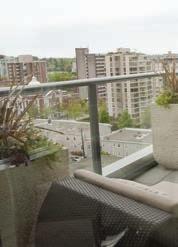
2 Match sentences 1–3 with topics a–c.
1 My new classmates are really friendly.
2 I hope you come to visit me soon I miss you!
3 There are a lot of things to do.
a) the house and area
b) people
c) feelings
3 Read Pablo’s email and find these informal words in the text.
OK Hi cool really bye!
Model Examm
5 Read the exam task below and then read the email from Pablo.
Exam task
Two months ago you lived in a house in a small town. Your house had a garden and you cycled to school.
Last month, you and your family moved to a big city. Now, you live in an apartment with a balcony in a large building. You have to travel to school by bus.
Write an informal email to a friend and tell them about the changes in your l information:
• A description of your new house
• A description of your new friends
• How you feel about the change
Write 100 to 150 words.
Writing an informal email



Some tests require to write an informal email. This will assess your ability to write short informal tex ts, to comprehend and to follow written instructions.

All Clear Tip



Describing places or people
If you are asked to describe a place, a thing or a person, think of all the adjectives you can use Remember that adjectives usually go before the noun and have no plural form.
4 Check in the Model Exam if Pablo has done these things:
1 Does he use informal opening and closing language?
2 Is the tex t divided into paragraphs?
3 Does he use contractions?
4 Is there any point in the exam question that he doesn’t answer?
Yes No
Describe your new house.

Hi, ThanksXavi!for your email! It was nice to hear from you.











My life has changed a lot, and I’m very Nowexcited!Ilive in a big city in an apartment. It’s in a really big building. We’ve got a fantastic view of the city. At first, I didn’t like it here because I missed my garden, but we’ve got a balcony, so it is OK. There are lots of shops and a few parks near my building. There’s also a really cool skate park!
My new school is OK and my classmates are really nice. My new friends are called Rosa and Luis. They are 12 years old. I travel to school by bus because it’s far away, but I don’t mind that.
When are you coming to visit me? I miss you!
Write back soon!
PabloBye!
How does the change feel?
Describe your new friends.
1 84
6 Read the Exam Task below. Think of some ideas for the task. Use these things to help you:
• Your notes from exercise 1
• The model answer in the Model Exam
• The Exam k it
An informal email
All Clear Tip
Organize your email










Organize your ideas into paragraphs with the appropriate beginning and ending Emails are informal, so be sure to use contractions (I am = I’m) and colloquial words. Don’t forget to include the greeting, the purpose of the message and the closing.
Exam Taskk
7 Read the exam task and follow the instructions.
Exam task
You are at a summer camp. Write a short informal email to a friend and tell them about the camp. Include the information below :

• The place, the people and the food
• The activities you are doing
• If you are / aren’t having a good time
Write 100 to 150 words.
Exam kit: Useful expressions
Dear … I’m writing to tell you about … I feel … Everybody is …
I’ve met I’m having Love,

Exam kit: Useful vocabulary
Describing people friendly funny generous patient sociable

Describing places relaxing noisy quiet busy exciting boring interesting
Describing food tasty delicious salty sweet healthy

Practice
85
EXAM TRAINER:
Preparation
1 Look at the example question below. What type of information do you need to complete the table? Complete the table using the words in the box.
the name of a sport a day of the week a number a person’s name
Example question



Name: (1) a nameperson’s













Age: (2)
Favourite sport: (3)

Member of a spor ts team?Yes When does your team meet? (4)
Model Examm
Fill in the information
You are supposed to read one or two short texts, for instance notes, emails or adverts, then use this information to complete a form, a notice or a similar document. This will assess your writing and your reading comprehension skills.
All Clear Tip
First look at the document you need to fill in Read the document to see what information is missing and what words might help you find it. Then read the text and find the correct information
2 Read the Model Exam. Match the questions a–e below to the missing information in boxes 1–5 in the registration form for the science camp.
a) Where does Dan live?
b) How old is Dan?
c) What is Dan’s mobile phone number?
d) How long does Dan want to stay at the camp for?
e) What does Dan want to learn more about?
3 Look at the Model Exam again. Use the information in Dan’s email to complete the registration form.
ThisDan’sindicatesage. ”7 days” matches the ”one week” choice.

To: applications@sheffieldsciencecamp.co.uk
Subject: Science camp application

Dear Ms Green, I would like to sign up for the camp this summer because I love science, especially biology. I’m 16 years old and I live at 11 Green Road, Manchester M20 6PJ. My mobile number is I’d07654321.liketospend seven days at the camp. I’d love to participate in the renewable energy workshop because I am really interested in this Pleasetopic.could you send me a registration form? Many thanks, Dan Benson
WRITINGSCIENCECAMP

REGISTRATION FORM
Name: Dan Benson
Age: (1)
Address: (2)
Phone number: (3)
Length of camp stay: (4) one week two threeweeksweeks
Area of interest: (5)
This leads you to the topic Dan is interested in.
2 86
4
Describing photos

5
1 the foreground the bac the middl the top o the







6 rom The Use The Model Ex p ze your time efficiently when talking about multiple pictures Don’t waste too much time on any particular. Try to sp an equal
At o’clock , (+ past simple or y o’clock (+ past per fec Taskk




In the foreground / back / middl the top / the lef t /






Practice Tuesday 7pm Tuesday 8pm
Look at photos A and B in the Exam Task. Which words from the Useful vocabulary box could you use to describe them?y
Complete the sentences about the two photos.
In
I can see … 2 In
kground I can see 3 In
e there’s … 4 At
f
picture, you can see
Prepare your description of photos A and B. Use these things to help you: • Your sentences f
exercise 5. •
ful vocabulary and Useful expressions. •
am on
age 98. All Clear Tip Organize your time Organi
.
one in
end
amount of time on each picture. 7 Now cover your description and describe photos A and B. If possible, record yourself!
Exam kit: Useful vocabulary Rescue and survival boat catch fire destroyed evacuate fire firefighters flames flood flooded hose rescuers roof smoke warning sign windows Exam kit: Useful expressions Describing photos
ground
e At
bottom On
right Narrating events
continuous) B
,
t) A B 99 Exam
EXAM TRAINER: SPEAKING








Preparation
1 Look at pictures A and B in the Model exam. Which words from the Useful vocabulary box on page 129 could you use to discuss them?p
2 Read and listen to part of Silvia and Hugo’s exam. Which new skills did Hugo learn?
Hugo Do you k now any magic tricks, Silvia?
Silvia No, I don’t. I’d love to learn! What about you?
Hugo Actually, I’ve just done a workshop on circus sk ills




Silvia Really? Did you enjoy it?
Hugo Yes, I went last week. It was great fun I learnt lots of magic tricks and I learnt to juggle, too. Can you juggle?
Silvia No, I can’t It looks really hard! Was it difficult?
Hugo Yes, it was really difficult at first, but af ter a few days I got quite good!
Silvia What magic tricks did you learn at the workshop?
Hugo I learnt how to make a bunch of flowers disappear!
Model Examm
Discussing or debating a topic
Your examiner will show you and your partner several pictures and will ask you to comment together on various aspects of the topic. This exercise will assess your ability to discuss with your partner and express your own ideas and experiences
3 Read the dialogue in exercise 2 again. Answer the questions.
1 Does Silvia k now any magic tricks?
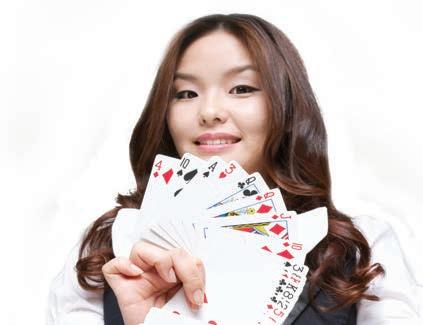
2 Where did Hugo learn to do magic tricks?

3 How did Hugo find juggling at first?

4 What did Hugo make disappear?

All Clear Tip



Be cooperative
To get good results, you must be able to communicate properly with your partner Ask him questions and comment on his answers.
Don’t try to steal the show, don’t talk incessantly and don’t interrupt him/her!
These pictures show different skills. Talk together about whether you have ever done any activities like these, and which activity you think is the most difficult.
3 A B 100
Discussing a topic
4 Look at pictures A and B in the Exam Task. Which skills do you think you would need to be successful in these activities?
5 Read the instructions for the Exam Task. Which of these questions wouldn’t you ask your partner in the exam? Why?
1 Have you ever baked a cake?
2 Can you describe the photographs?
3 Which activity would you prefer to do?
4 Have you ever ridden a unicycle?
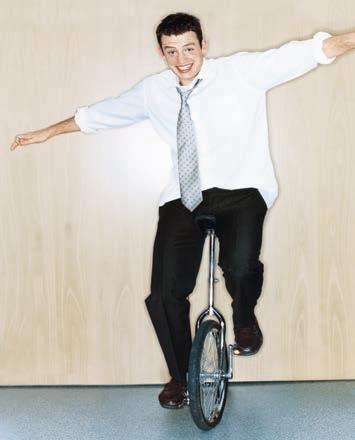
6 Prepare your discussion. Write your answers to the three questions you would ask in exercise 5. Add more information.
I’ve never baked a cake, but I often cook dinner …
7 Work in pairs. Do the activity in the Exam Task. Use these things to help you:
• Your answers from exercise 6.
• The model dialogue in exercise 2.
• The Useful vocabulary and Useful expressions
All Clear Tip




Describing or debating?
During the speaking exam, don’t describe the pictures. You must debate or comment upon them.

In this picture I can see someone making cakes. ✗ I’ve never ridden a unicycle. I would love to learn, though! ✓

togetherdifferentTheseExaminer’sTaskkquestionspicturesshowactivities.Talkaboutwhether you have done these activities, and which one you would prefer to do and why.
Exam
AB

Exam kit: Useful vocabulary




Skills and abilities be able to bake a cake balance circus sk ills cooperation coordination do magic tricks fitness fun funny good memory juggle pack of cards ride a unicycle sk ill trapeze
Exam kit: Useful expressions
Keeping the conversation going
What about you? Have you ever … ?
Really? When / Where / What did you … ?





Did you enjoy it?
What do you think? Tell me more about it!
Practice
101
Let’s have fun!
1 Read the sketch and answer the questions.
1 How many rooms do the friends visit?


2 Where does Mr Phillips go?
3 What does Amy hear?
In the museum
Amy Look at these old bikes! They’re enormous! And look at the photos of the people riding them. They aren’t very tall.
Billie No! But bikes are different
Marcus This is a great museum! I love looking at the photos and things. People wear funny clothes – look at those trousers!
Jake I think they are special trousers for cycling
Billie And the women have beautiful dresses. Come and see the woman in this photo!
Jake Yes, she is the queen, Queen Victoria.
Marcus What’s in this room?

Amy This is a model of Henry VIII! His coat’s amazing! And he is wearing shorts! I wonder why?
Marcus Jake, stand next to him I want to take a photo
Billie You may not take photos in a museum. It’s not allowed!
Jake Hey! Where’s our class? Where are we?

Marcus I don’t k now. I think this is the Kings and Queens’ room

Amy Come on! The museum’s closing soon, and they ’re leaving us here!
Billie Look at this furniture, this is the k ing’s bed! It ’s enormous!
Jake Billie! We’re look ing for Mr Phillips!
I’m afraid he’s really angry.







Amy I’m scared. I don’t like this. What ’s this noise! Can you hear it? Over there, near the k ing’s bed!



Marcus You don’t hear anything, Amy, it ’s your imagination.
Amy No, it isn’t! Look! I want to go home. Listen! That noise again. Can you hear it, Billie?
Billie I can hear something … wait It ’s my mobile phone! I’ve got it here! Hello? Mr Phillips!! Hooray!!
How do you know carrots are good for your eyes? Joke time! I scream, you scream, we all scream for ice cream! Read and say! Because you never see rabbits wearing glasses!
2 Work in groups. Practise and perform the sketch. • Choose a character • Read and learn your lines. • Per form for your class 102
Irregular verbs
Infinitive
Past simplePast participle Translation
be /biː/ was, were /wɒz/, /wɜː(r)/ been /biːn/ beat /biːt/ beat /biːt/ beaten /ˈbiːt(ə)n/ become /bɪˈkʌm/ became /bɪˈkeɪm/ become /bɪˈkʌm/ begin /bɪˈɡɪn/ began /bɪˈɡæn/ begun /bɪˈɡʌn/ bite /baɪt/ bit /bɪt/ bitten /ˈbɪt(ə)n/ break /breɪk/ broke /brəʊk/ broken /ˈbrəʊkən/ bring /brɪŋ/ brought /brɔːt/ brought /brɔːt/ build /bɪld/ built /bɪlt/ built /bɪlt/ buy /baɪ/ bought /bɔːt/ bought /bɔːt/ catch /kætʃ/ caught /kɔːt/ caught /kɔːt/ choose /tʃuːz/ chose /tʃəʊz/ chosen /ˈtʃəʊz(ə)n/ come /kʌm/ came /keɪm/ come /kʌm/ cost /kɒst/ cost /kɒst/ cost /kɒst/ cut /kʌt/ cut /kʌt/ cut /kʌt/ do /duː/ did /dɪd/ done /dʌn/ draw /drɔː/ drew /druː/ drawn /drɔːn/ dream /driːm/ dreamt, dreamed /dremt/, /driːmd/ dreamt, dreamed /dremt/, /driːmd/ drink /drɪŋk/ drank /dræŋk/ drunk /drʌŋk/ drive /draɪv/ drove /drəʊv/ driven /ˈdrɪv(ə)n/ eat /iːt/ ate /eɪt/ eaten /ˈiːt(ə)n/ fall /fɔːl/ fell /fel/ fallen /ˈfɔːlən/ feed /fiːd/ fed /fed/ fed /fed/ feel /fiːl/ felt /felt/ felt /felt/ fight /faɪt/ fought /fɔːt/ fought /fɔːt/ find /faɪnd/ found /faʊnd/ found /faʊnd/ fly /flaɪ/ flew /fluː/ flown /fləʊn/ forget /fə(r)ˈɡet/ forgot /fə(r)ˈɡɒt/ forgotten /fə(r)ˈɡɒt(ə)n/ get /ɡet/ got /ɡɒt/ got /ɡɒt/ give /ɡɪv/ gave /ɡeɪv/ given /ˈɡɪv(ə)n/ go /ɡəʊ/ went /went/ gone /ɡɒn/ grow /ɡrəʊ/ grew /ɡruː/ grown /ɡrəʊn/ have /hæv/ had /hæd/ had /hæd/ hear /hɪə(r)/ heard /hɜː(r)d/ heard /hɜː(r)d/ hide /haɪd/ hid /hɪd/ hidden /ˈhɪd(ə)n/ hit /hɪt/ hit /hɪt/ hit /hɪt/ hold /həʊld/ held /held/ held /held/ hurt /hɜː(r)t/ hurt /hɜː(r)t/ hurt /hɜː(r)t/ keep /kiːp/ kept /kept/ kept /kept/ know /nəʊ/ knew /njuː/ known /nəʊn/ learn /lɜː(r)n/ learnt, learned /lɜː(r)nt/, /lɜː(r)nd/
learnt, learned /lɜː(r)nt/, /lɜː(r)nd/

103
Infinitive
Past simplePast participle Translation
leave /liːv/ left /left/ left /left/ lend /lend/ lent /lent/ lent /lent/ let /let/ let /let/ let /let/ lose /luːz/ lost /lɒst/ lost /lɒst/ make /meɪk/ made /meɪd/ made /meɪd/ mean /miːn/ meant /ment/ meant /ment/ meet /miːt/ met /met/ met /met/ pay /peɪ/ paid /peɪd/ paid /peɪd/ put /pʊt/ put /pʊt/ put /pʊt/ read /riːd/ read /red/ read /red/ ring /rɪŋ/ rang /ræŋ/ rung /rʌŋ/ run /rʌn/ ran /ræn/ run /rʌn/ say /seɪ/ said /sed/ said /sed/ see /siː/ saw /sɔː/ seen /siːn/ sell /sel/ sold /səʊld/ sold /səʊld/ send /send/ sent /sent/ sent /sent/ shine /ʃaɪn/ shone /ʃɒn/ shone /ʃɒn/ shoot /ʃuːt/ shot /ʃɒt/ shot /ʃɒt/ show /ʃəʊ/ showed /ʃəʊd/ shown /ʃəʊn/ shut /ʃʌt/ shut /ʃʌt/ shut /ʃʌt/ sing /sɪŋ/ sang /sæŋ/ sung /sʌŋ/ sit /sɪt/ sat /sæt/ sat /sæt/ sleep /sliːp/ slept /slept/ slept /slept/ speak /spiːk/ spoke /spəʊk/ spoken /ˈspəʊkən/ spell /spel/ spelt /spelt/ spelt /spelt/ spend /spend/ spent /spent/ spent /spent/ stand /stænd/ stood /stʊd/ stood /stʊd/ steal /stiːl/ stole /stəʊl/ stolen /ˈstəʊl(ə)n/ swim /swɪm/ swam /swæm/ swum /swʌm/ take /teɪk/ took /tʊk/ taken /ˈteɪkən/ teach /tiːtʃ/ taught /tɔːt/ taught /tɔːt/ tell /tel/ told /təʊld/ told /təʊld/ think /θɪŋk/ thought /θɔːt/ thought /θɔːt/ throw /θrəʊ/ threw /θruː/ thrown /θrəʊn/ understand /ˌʌndə(r)ˈstænd/ understood /ˌʌndərˈstʊd/ understood /ˌʌndərˈstʊd/ wake /weɪk/ woke /woʊk/ woken /ˈwoʊkən/ wear /weə(r)/ wore /wɔː(r)/ worn /wɔː(r)n/ win /wɪn/ won /wʌn/ won /wʌn/ write /raɪt/ wrote /rəʊt/ written /ˈrɪt(ə)n/
104
